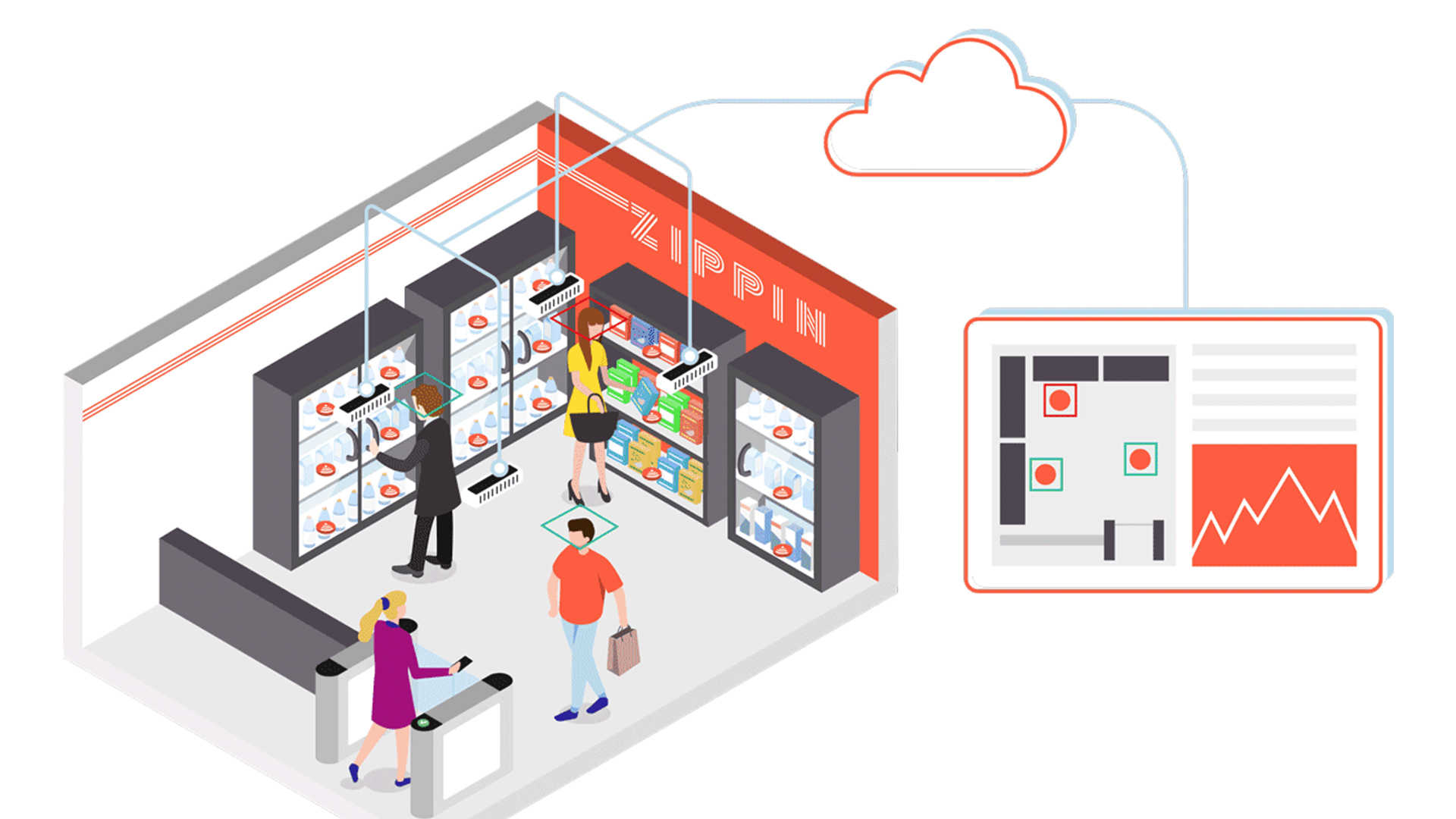| | | | | | | Presented By OurCrowd | | | | Axios Markets | | By Sam Ro ·Jul 19, 2021 | | Today's newsletter is 1,269 words, 5 minutes. 🥊of the day: "Which do you prefer, BTC or ETH?" - Mike Tyson | | | | | | 1 big thing: Consumers complain and buy anyway |  Data: University of Michigan; Chart: Axios Visuals Shoppers are outraged by how expensive some stuff is getting. Why it matters: Consumer sentiment is important because it's generally correlated with spending. - Complaints about prices today and concerns about inflation down the road have caused the recovery in sentiment to stall.
Yes, but: Consumers are spending nonetheless. Retail sales unexpectedly grew strongly in June during a month when consumer prices rose by more than expected. By the numbers: The University of Michigan's widely followed consumer sentiment index unexpectedly tumbled to 80.8 in July from 85.5 in June. - Consumers have increasingly said they are worried about what inflation may look like one year and five years from now.
- The report also found that consumers have never been more frustrated by the rising prices of homes, cars and durable goods like home appliances.
- For these categories, a net 33% of consumers said it was a bad time to buy because prices were too high. This is an all-time record according to data going back to 1960.
- The report found 71% of consumers thought it was a bad time to buy a home because prices were too high, while just 6% thought it was a good time to buy because prices were low.
What they're saying: "Consumers' complaints about rising prices on homes, vehicles, and household durables has reached an all-time record," Richard Curtin, the survey's chief economist, said in a statement. - "Purchase rates, however, have benefitted from record increases in accumulated savings and reserve funds."
- Indeed, some estimate that consumers accumulated $2.4 trillion in excess savings since the onset of the COVID-19 pandemic, suggesting that the consumers' pump is primed.
What to watch: Recent housing market data suggest sales volumes are about to turn up again, even as home prices continue to surge. The bottom line: While higher prices will continue to have consumers incensed, hard spending data like retail sales confirm that they have the ability and willingness to make purchases anyway. |     | | | | | | 2. Catch up quick | | OPEC+ reached a deal on Sunday to increase oil production by 400,000 barrels a day incrementally each month beginning in August. (Axios) Bill Ackman will buy 10% of Vivendi's Universal Music Group with his hedge fund rather than his SPAC. (Reuters) Robinhood plans to raise around $2.2 billion in its IPO, giving the company a $33 billion valuation. (Axios) Zoom is buying cloud call center company Five9 for $14.7 billion. (Axios) |     | | | | | | 3. Clearance drought 🛒 |  Data: Census Bureau; Chart: Axios Visuals Shoppers who are upset about the rising prices of goods won't find much solace in discount bins and sale racks. Driving the news: Shortages have plagued almost every industry, with surging demand outpacing supply as the economy reopens. Why it matters: Retailers facing tight inventories are having a tough time keeping shelves stocked with new stuff. But this means there's less stuff that'll get marked down and moved to clearance sections. - The temporary tight inventories are boosting corporate earnings growth and may also be skewing inflation figures.
By the numbers: According to the Census' business inventories report released on Friday, retailers' inventory levels were essentially unchanged from a year ago - During that same period, sales jumped 23.5%.
- The inventories to sales ratio fell to 1.09 from 1.34 in the prior year, which means inventories are a lot tighter.
- This ratio was lower for most categories including cars, furniture and clothing.
What they're saying: "When COVID hit, everyone was trying to get their inventories in line," Pivotal Research senior analyst Mitch Kummetz tells Axios. - "Pretty quickly we got into a situation where demand was outstripping supply."
- "The fact that they are selling things at full price without having to discount — that's driving a lot of these big earnings that we've been seeing."
The big picture: This dynamic puts upward bias in the inflation reports we see, UBS economist Paul Donovan wrote on Friday. - But it's also among the reasons to believe the current elevated levels of inflation could prove transitory.
- "The process is about failing to cut prices (or cutting prices less than normal)," Donovan wrote. "It is not a signal of longer-term pricing power."
What to watch: Retailers will announce quarterly earnings in August, and they'll reveal to investors and analysts what's going on with pricing and inventories. |     | | | | | | A message from OurCrowd | | Meet the AI tech deployed by the world's largest food service company | | |  | | | | Invest in the tech transforming customer experience -- at OurCrowd. Zippin combines advanced AI, computer vision and a sophisticated sensor system to enable contactless payments for the world's leading retailers. Explore Zippin's investment potential at OurCrowd. | | | | | | 4. Olympics could miss the mark for many sponsors |  | | | Illustration: Brendan Lynch/Axios | | | | The Olympic opening ceremonies are on Friday. The decision to move forward with the Games has put sponsors in a tricky position because they are no longer the predictable investment that they were pre-pandemic, Axios' Hope King writes. The latest: Toyota, one of the Games' top sponsors, said Monday morning that it would not run Olympics-related TV commercials, according to a local report. Why it matters: Companies spend hundreds of millions of dollars for the right to be associated with the Olympics, a singular opportunity to reach a global audience for weeks and months. - But a global health crisis and local controversy over this year's Games are leaving sponsors in a much tougher spot than they anticipated.
State of play: Not only are spectators banned from attending, nearby fan zones have been scrapped as well. By the numbers: "Worldwide" partners like Airbnb reportedly pay $500 million for a nine-year right to be the Games' official housing sponsor, while lower tier "Gold" partners like Asahi reportedly paid about $135 million to support the Tokyo Games specifically. Yes, but: While sponsorships are important sources of revenue for local organizing committees and host cities, they only represent a fraction of the revenue for the IOC. - Since 1993, 21% of IOC revenue has come from sponsors compared to 79% of revenue from broadcast rights, according to an Axios analysis of an IOC report.
- At the host city level however, the picture changes dramatically — 64% of revenue has come from domestic sponsorships, 30% from ticketing and 6% from licensing.
Go deeper: Read Hope's full story, and check out this report by Axios' Felix Salmon on the dire economics of the Olympics for host cities. |     | | | | | | 5. Wall Street bitcoin thaw 💰 |  | | | Illustration: Sarah Grillo/Axios | | | | Bank of America may be loosening its stance on bitcoin. Driving the news: Bank of America has approved the trading of cash-settled bitcoin futures for some clients, Coindesk's Will Canny and Tanzeel Akhtar report. Why it matters: This would be a change in tone from a bank that's historically distanced itself from the cryptocurrency business. Flashback: "Currently, we do not lend against cryptocurrencies and do not bank companies whose primary business is cryptocurrency or the facilitation of cryptocurrency trading and investment," Bank of America CEO Brian Moynihan said to the Senate Banking Committee on May 21. State of play: Clients of brokerages sitting on the crypto trading sidelines have had other options like fintech startups Coinbase and Robinhood. Yes, but: "We continue to evaluate the opportunities, risks and client demand for products and services related to cryptocurrency," Moynihan had added in May. This was a sentiment shared by his peers at Citigroup and Wells Fargo. - Just last month, CNBC reported Goldman Sachs was trading bitcoin futures with crypto firm Galaxy Digital.
What they're saying: "BofA getting into this as the crypto market cools is an interesting note on the momentum behind bitcoin's institutional moment," Coindesk deputy global news editor Zack Seward tells Axios. - "The fact that it's a futures play gives BofA clients the ability to bet on the market through thick and thin."
The bottom line: From weather derivatives to bonds backed by David Bowie's music, financial services firms have long demonstrated flexibility to create and offer financial products in response to client demand. |     | | | | | | A message from OurCrowd | | Meet the AI tech deployed by the world's largest food service company | | |  | | | | Combining advanced AI, computer vision and a sensor system, Zippin helps optimize the checkout experience for consumers and retailers. Billion-dollar retailers are already using this transformative tech. Now, you can invest. Zippin is transforming the trillion dollar retail industry. | | |  | | It'll help you deliver employee communications more effectively. | | | | | | Axios thanks our partners for supporting our newsletters. If you're interested in advertising, learn more here.
Sponsorship has no influence on editorial content. Axios, 3100 Clarendon Blvd, Suite 1300, Arlington VA 22201 | | | You received this email because you signed up for newsletters from Axios.
Change your preferences or unsubscribe here. | | | Was this email forwarded to you?
Sign up now to get Axios in your inbox. | | | | Follow Axios on social media:    | | | | | |








No comments:
Post a Comment